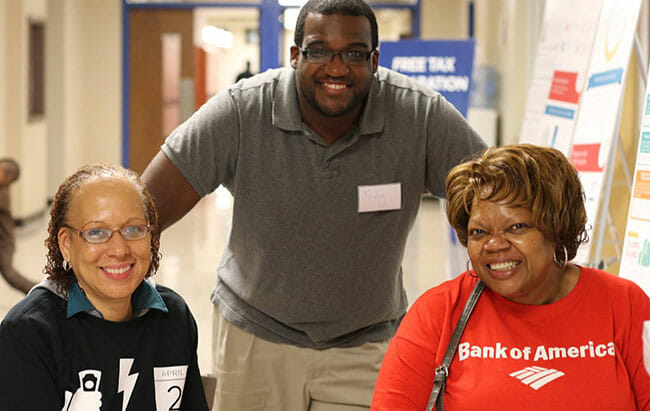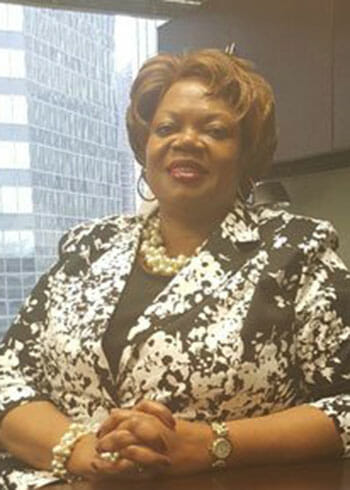Virginia Fenton


Not long after she started a job at a prominent financial services firm, Virginia “Vivian” Fenton began volunteering for Baltimore CASH Campaign, a local nonprofit whose mission is “creating assets, savings, and hope.” Fenton wanted to share valuable lessons she learned from her parents, who emigrated from Montserrat, on the importance of building savings.
“When I got my first job, my mom asked me to give her a certain amount each week,” says Fenton. “Then after I graduated from high school, she told me she had used it to start a savings account in my name. It taught me you can do it, no matter how little you earn. My dad worked as a nurse’s aide and my mom stayed at home, occasionally doing some crocheting to bring in extra money. Yet they were able to provide a comfortable childhood for me. If I can show others how to save and do well, I am thrilled to do so.”

Fenton’s service to Baltimore CASH Campaign is part of the Financial Opportunity Corps, which recruits and trains volunteers as financial coaches who help people from low- and moderate-income households achieve financial stability. The program is a partnership between Points of Light, Bank of America and the Corporation for National and Community Service, and includes AmeriCorps VISTA members serving nonprofit organizations in 13 cities around the country and will expand to more cities this year. With the support of Financial Opportunity Corps members, financial coaches help participants develop strategies to reduce debt, improve credit, start saving for emergencies, access benefits and build assets for long-term financial health.
For most of her time at the nonprofit, Fenton has worked as a greeter, interacting with hundreds of people who come through the door to meet with tax preparers and financial advisors at no cost.
“I love seeing how we can help them,” she says. “I remember one client came in crying because she had gone somewhere else to get her taxes done and not only had they charged her, but they had told her she owed money to the government. She learned about Baltimore CASH and by the time she left, she had a big smile on her face because she’d learned that she actually was due a refund. I thought, this the kind of thing that makes me really want to volunteer for this organization.”
Lately, Fenton has decided she can do more — and has undergone additional training to learn how to be a coach in the organization’s six-month program dedicated to helping people who are struggling financially get back on their feet. She’s currently working with her first client, a woman in her twenties who wants to reduce her debt and start saving to buy a home.
“We meet once or twice a month, and look at her spending habits and try to pinpoint ways in which she can cut back, such as dining out a lot,” says Fenton. “Sometimes what really helps is writing down every little expense. Then, I put the ball in her court and ask her where she thinks she can make the most impact.”
Fenton also shares tips on contacting providers like credit card and cellphone companies. “People need to understand that if they roll up their sleeves and do their homework, they can usually get better interest rates or monthly packages,” she says.
In the near future, Fenton also plans to offer money-management courses to a few groups at her church. “I like the saying, ‘what we believe, we become,’” she says. “I enjoy empowering people to believe that they can become whoever they want to.”
Others looking for volunteer opportunities might ask around at work; often, as in Fenton’s case, they may find the perfect match for their skills.
